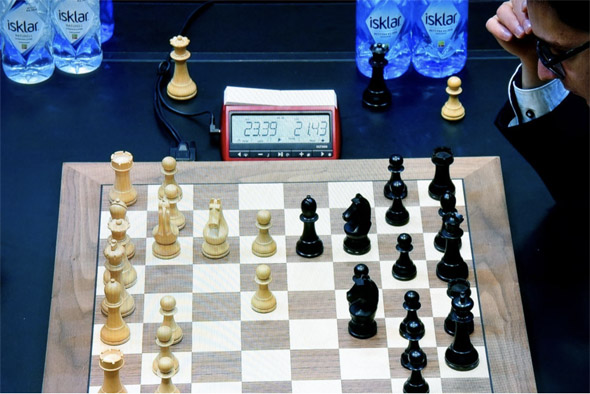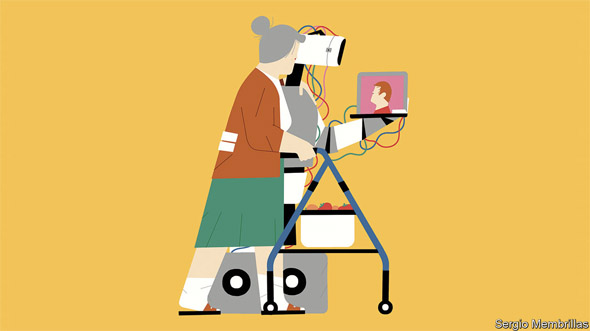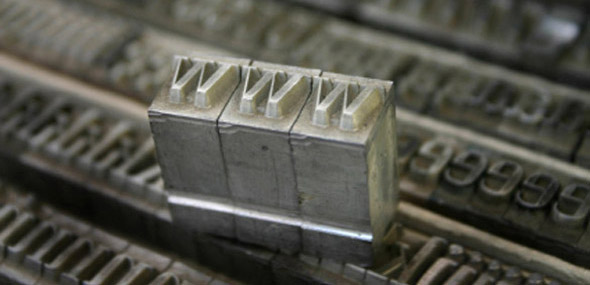Said and Done | In the Media + Awards | February 2019
A section of Said and Done
Full February 2019 edition
RECENT HONORS & AWARDS

KNIGHT SCIENCE JOURNALISM PROGRAM AT MIT
Undark magazine wins the 2019 Polk Award in Environmental Reporting
Photojournalist Larry C. Price and reporters for Undark magazine received the prestigious award for “Breathtaking,” a global portrayal of the lethal impacts of particulate pollution. For the multimedia series, directed by editor-in-chief Tom Zeller, Jr., Undark visited seven locations on five continents. Undark publisher is Deborah Blum, director of KSJ@MIT. Congratulations to everyone on the team for highlighting this global issue so effectively: "Particulate pollution kills millions each year; it doesn't have to be that way."
View the series: Breathtaking | Undark | KSJ@MIT
MUSIC AND THEATER ARTS
Brathwaite's Forgotten Paradise wins 2019 Creative Capital Award
Forgotten Paradise: Gazette’s Sun is an experiment in creative nonfiction filmmaking, installation and live performance. It traces the lineage of Director Charlotte Brathwaite’s family history against the backdrop of the trans-Atlantic slave trade.
More about the winners
MUSIC AND THEATER ARTS
Urban's The Remains nominated for five Helen Hayes Awards
Ken Urban's play, THE REMAINS, was just nominated for five Helen Hayes Awards for its world premiere in DC, including Charles MacArthur Award for Outstanding Original New Play, Robert Prosky Award for Outstanding Lead Actor in a Play (Glenn Fitzgerald), Outstanding Supporting Actress in a Play (Danielle Skraastad), Outstanding Ensemble in a Play, and Outstanding Direction in a Play.
See the full list of nominees
ECONOMIC POLICY | CLEAN ENERGY, JOBS, REDUCING INEQUALITY
CLEAN ENERGY
A Green New Deal is already happening
People believe a Green New Deal will be enormously expensive — we think of FDR's vast public spending in the wake of the Great Depression, and assume hundreds of billions in upfront investment. But the real story is that we've already seen huge payoffs on the relatively modest investments made on clean energy. A recent paper from MIT shows how public investment helped deliver today's incredibly cheap solar power systems.
Story by BuzzFeed News
TAX POLICY
Economic experts analyze Elizabeth Warren's tax proposal | Gruber
Warren's tax, the brainchild of UC Berkeley economists Emmanuel Saez (MIT PhD '99) and Gabriel Zucman, would impose an annual 2 percent tax on households worth more than $50 million and a 3 percent tax on ones worth more than $1 billion, overall impacting an estimated 75,000 households. According to Jonathan Gruber, Ford Professor of Economics at MIT, Warren's proposal could be a powerful tool to grow the economy.”
Story at WGBH
TAX POLICY
Elizabeth Warren's wealth tax is an old idea and its time has come | Gruber
Economists who have looked into tax avoidance have reached differing conclusions. A recent study of Switzerland, which has long administered a wealth tax at the level of individual cantons, found that a “0.1 percentage-point increase in wealth taxes leads to 3.4% lower wealth holdings in the cross canton data.” That's a big impact. “When you tax people's wealth, they manage to somehow reduce their taxable wealth,” Jonathan Gruber, an MIT economist who was one of the authors of the study. Gruber added, “Elizabeth Warren's tax would raise money, it's a question of how much.”
Story at The New Yorker + Related analysis at The Washington Post
LABOR ECONOMICS
Loss of middle-skilled jobs is increasing inequality in urban areas | Autor and Fournier
Autor and Fournier find that, for workers who did not go to college, a larger share of middle-skilled work has been replaced by low-skilled jobs. Though the proportion of Americans who don’t attend college has been falling, this still represents about one-third of the working-age population. In perhaps the most innovative part of their research, Autor and Fournier show that the move from middle-skilled to low-skilled work among less-educated workers has been particularly prominent in cities.
Story at Quartz

Image via Reuters/Brian Snyder
TRADE
Trump’s dismal popularity among foreigners may be costing the US billions in exports
Rose, who has been at the University of California for more than 30 years, previously worked at the World Bank, the U.S. Treasury Department and at central banks in more than one dozen countries around the world. He holds at Ph.D. in Monetary Economics from MIT. In a prior study, Rose found that holding other things constant, a country’s exports are higher if it is perceived by the importer to be exerting more positive global influence.
Coverage at CNBC
REDUCING ECONOMIC INEQUALITY
Is Rahul Gandhi's income guarantee for India's poor viable?
Abhijit Banerjee, a professor of economics at MIT, told me that there is "a lot of sympathy for the minimum income guarantee in purely ethical terms." But, he says, there will be a lot of challenges in implementing it in a vast and complex country like India.
Story at BBC
ECONOMIC INEQUALITY
A new home for extreme poverty: middle-income countries
MIT economics doctoral student Lisa Page writes "Data released by the World Bank in September shows that the rate of extreme-poverty reduction is slowing down...China, India, Nigeria and several other countries still have huge populations of poor people and have become more unequal as they have grown. This has created two concentrations of poverty in the world."
Op-ed at the New York Times
DISABILITY APPLICATIONS
America's hidden workforce returns | Autor
“A smaller share of people are getting on the program, and that is causing people to not apply and instead to seek alternatives,” said MIT economist David Autor. His research was among the first to document the causes and consequences of rising disability claims. Autor said the recent decrease in disability applications and awards is similar to a crackdown in the early 1980s, which Congress later reversed.
Story at The Wall Street Journal
SECURITY IN OLD AGE
Working to 70 is not an easy fix to the retirement crisis | Poterba
James Poterba, an MIT economics professor, pointed to the problem at a Brookings Institution forum on the topic last week. “Not everybody can work longer,” said Poterba, who is also president of the National Bureau of Economic Research. He contrasted workers in physically demanding or unpleasant jobs to economists in academic offices comfortably churning out studies on Social Security fixes.
Story at Reuters
IMPACT OF TECHNOLOGY ON BLUE COLLAR WORKERS
Tech is splitting the U.S. work force in two | Acemoglu
“The view that we should not worry about any of these things and follow technology to wherever it will go is insane,” said MIT economist Daron Acemoglu. The growing awareness of robots' impact on the working class raises anew a very old question: Could automation go too far? Acemoglu and Pascual Restrepo of Boston University argue that businesses are not even reaping large rewards for the money they are spending to replace their workers with machines.
Story at The New York Times

Image via Dominic Valente for The New York Times
POLITICAL LANDSCAPE
US/KOREA NEGOTIATIONS
Winning the nuclear game against North Korea | Narang
I talked to Vipin Narang, a political science professor at MIT. While not a game theorist himself, Narang's beautiful mind is pushing forward on how traditional nuclear deterrence strategy can be modernized for the new era of great-power conflict. "It's really about a strategic logic — how your adversary behaves based on your moves and how you react to their reaction to your moves."
Conversation at Bloomberg

Nicky J. Sims/Getty Images for Kaspersky Lab
ARMS RACE
Trump unveils ambitious missile defense plans | Narang
That adjustment could lead to an arms race, warns Vipin Narang, an arms control expert at MIT. The explicit calling out of Russian and Chinese weapons might provide a political opportunity for those nations to accelerate their programs, he argues. "This will be a gift for Putin."
Story at NPR
US/KOREA NEGOTIATIONS
It’s official: Trump and Kim Jong Un will have a second summit | Narang
Vipin Narang, an expert on North Korea's nuclear program at MIT, laid out three possible scenarios for what could happen at the next Trump-Kim meeting. The first and best scenario is that Kim agrees to actually slow down his nuclear development and give up some of his arsenal.
Story at Vox
RHETORICAL STRATEGIES
The White House and the art of the nondenial denial | Schiappa
As a rhetorical device, NDDs are an updated version of the “red herring” fallacy, the notion that an irrelevant topic is introduced in an argument to divert attention from the original issue, said Edward Schiappa, an MIT professor of comparative media studies. “It’s another in a long line of strategies of evasion.”
Story at Mercury News
RHETORIC AND POLITICS
Dissecting Trump's "oddly adolescent" speaking style | Schiappa
Edward Schiappa, a professor of Rhetoric and Media at MIT explained that "Cicero described three styles of speaking — the Grand, Middle, and Plain, based on vocabulary, sentence structure, manner of delivery, and sophistication of the ideas expressed. The Grand style is rarely used by US presidents in the past 100 years, but John F. Kennedy's inaugural and Ronald Reagan's Challenger eulogy are in that tradition. Most presidents aim for the Middle style, which Cicero suggests avoids ornateness but is still "pleasing" to the audience.
Story at CNN
US/KOREA NEGOTIATIONS
Trump will meet North Korea's Kim Jong Un in Vietnam | Narang
Vipin Narang, an expert on North Korea's nuclear program at MIT, laid out three possible scenarios for what could happen at the next Trump-Kim meeting. The first and best scenario is that Kim agrees to actually slow down his nuclear development and give up some of his arsenal. He could ship some of his intercontinental ballistic missiles out of his country, freeze plutonium and uranium production, and/or allow rigorous inspections of its key nuclear and missile facilities.
Story at Vox
NATIONAL SECURITY STRATEGY
Are U.S. tax dollars wasted on Afghan helicopters nobody will fly? | Posen
“The pilot and maintenance-personnel training problems for the UH-60 program in Afghanistan are one more example of the inability or unwillingness of the US military to train indigenous forces for truly independent operations,” Barry R. Posen, the director of MIT's Security Studies Program, told WhoWhatWhy in an email. “In many parts of the world, even much simplified versions of US technology and tactics seem beyond the effective reach of local forces on any kind of reasonable timeline.
Story at Salon
AI, ALGORITHMS, AND SOCIAL JUSTICE
How to solve AI's problem with gender and racial bias | Buolamwini
MIT graduate student Joy Buolamwini writes in Time: "The underrepresentation of women and people of color in technology, and the under-sampling of these groups in the data that shapes AI, has led to the creation of technology that is optimized for a small portion of the world.
Story at Time

photo courtesy of Joy Buolamwini
AI AND BIAS
Supposedly "fair" algorithms can perpetuate discrimination
The original idea of risk spreading and the principle of solidarity was based on the notion that sharing risk bound people together, encouraging a spirit of mutual aid and interdependence. By the final decades of the 20th century, however, this vision had given way to the so-called actuarial fairness promoted by insurance companies to justify discrimination. Joi Ito, writing for Wired, features MIT SHASS historian Caley Horan's research and forthcoming book, Insurance Era.
Story at Wired | Interview by SHASS Communications
AI AND INJUSTICE
Amazon still pushing biased facial-recognition software to law enforcement
Amazon CEO Jeff Bezos was made aware of biases in its facial-recognition software last June when Joy Buolamwini, a PhD student at the MIT Media Lab and founder of Algorithmic Justice League (established to combat bias in decisioning software) wrote an open letter that revealed the company's Rekognition tool underperformed in identifying darker-skinned individuals and women. Seven months later, the software giant is still selling the technology.
Story at Forbes
AI AND ETHICAL DECISION-MAKING
Why the "trolley problem" is the wrong way to think about AVs
In a recent MIT study, thousands of participants were asked whether an AV should kill a driver or a pedestrian, a homeless man or an executive, and so on, sorting people into categories as specific as male athlete, female doctor, small child, or baby in a stroller. Participants' choices were assembled into a preference scale, ranking who is most preferable to spare or kill.
Story at Axios
CULTURE OF INNOVATION
ROBOTICS, ECONOMICS, AND AGING
An aging world needs more resourceful robots | Acemoglu and Restrepo
Daron Acemoglu of MIT and Pascual Restrepo of Boston University show that, between 1993 and 2014, the countries that invested the most in robotics were those that were ageing the fastest — measured as a rise in the ratio of people over 56 compared with those aged 26-55. The authors posit a rule of thumb: a ten-point rise in their ageing ratio is associated with 0.9 extra robots per thousand workers.
Story at The Economist

image via The Economist/Sergio Membrillas
ONLINE EDUCATION
Are MOOC achieving their goals? | Reich and Ruipérez-Valiente
In an article in Science entitled "The MOOC Pivot" (sub. req.), MIT's Justin Reich and José A. Ruipérez-Valiente find that MOOCs are falling short of the mission to transform education worldwide
Story at Inside Higher Ed
CHANGES IN WORK AND THE WELL-BEING OF MEN
The fight over men is shaping our political future | Autor
"The greatest adverse shock to the psychosocial welfare of U.S. men has not stemmed from dysfunctional notions of masculinity (not that these are above reproach) nor from #MeToo (which was long overdue) but from deep secular labor market forces — both technological and trade-induced — that have over nearly four decades reduced the demand for skilled blue collar work.'"
Story at The New York Times
PRIVACY AND SOCIAL MEDIA
Has Facebook been good for the world? | Turkle
Sherry Turkle, author of Life on the Screen and clinical psychologist at MIT: "Technology is the architect of our intimacies. When, 10 years ago, I first began studying how people felt about their lives in Facebook's private/public gray zone, one young woman said it was all the same to her: 'Who would care about me and my little life?'"
Story at Vox
MIT GAME LAB
'Fortnite' held a Marshmello concert — and it's the future of the multiverse.
That word, "presence," has long been used to describe the game-changing conceptual phenomenon of VR, but according to Mikael Jakobsson, a research scientist at MIT Game Lab, immersion comes in all kinds of shapes. "The Fortnite phenomenon shows it doesn't take that much technological connection for people to feel that they are together in a virtual place — to make friends, and to start caring about what happens to their characters."
Story at Wired
COMMUNITY
POLITICAL SCIENCE
Tom Wolf (PhD '81) begins second term as the Governor of Pennsylvania
Wolf earned a doctorate in political science from the Massachusetts Institute of Technology.
Story at Newsweek
MUSIC
Imani Winds quintet warms up a frigid evening
A thoughtful “Wind Quintet,” by the prolific MIT-based composer John Harbison, unfolding in five movements, added a leavening of intellectual rigor and piquant dissonance to the program. Lalo Schifrin's sleek and polished “La Nouvelle Orleans” evoked the famous funeral processions of New Orleans, somber on the way to the graveside and celebratory on the way back.
Review at The Washington Post
ECONOMICS
A likely candidate for World Bank president
The most obvious candidate is Ngozi Okonjo-Iweala. The former foreign affairs and finance minister for Nigeria, a veteran of the World Bank bureaucracy, and an economics PhD from MIT, Okonjo-Iweala would be the first woman and the first African to run the bank..
Story at Vox
A section of Said and Done
Full February 2019 edition
STAY IN TOUCH
Follow us
![]()
![]()
Research Impact
Explore
SHASS on MIT News
Research, Features, Awards
MIT Campaign for a Better World
Story | Join Us
Videos
Watch
Said and Done is published by SHASS Communications
Office of the Dean, MIT School of Humanities, Arts, and Social Sciences
Published 22 February 2019

